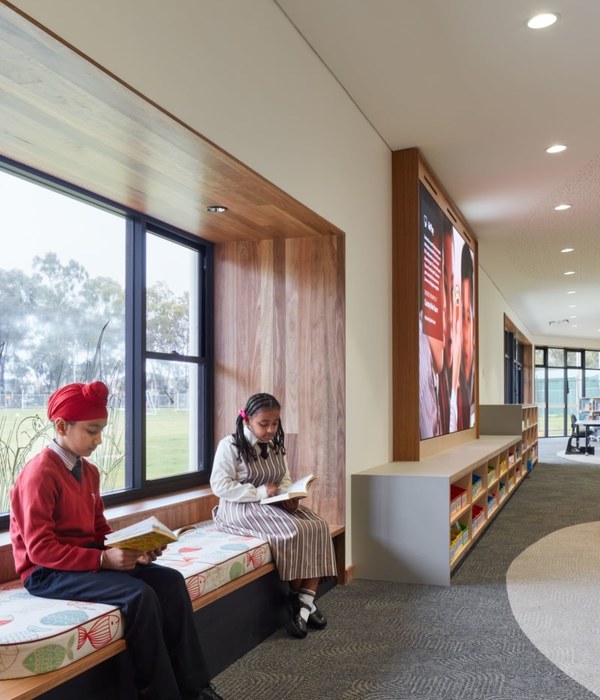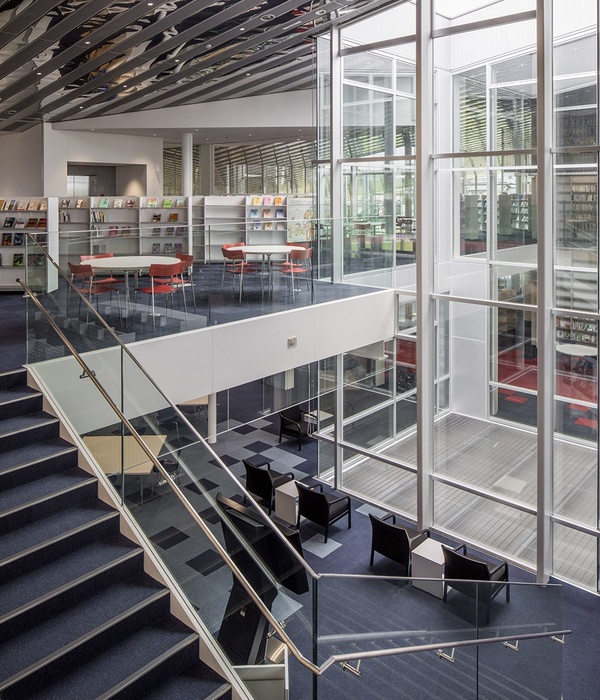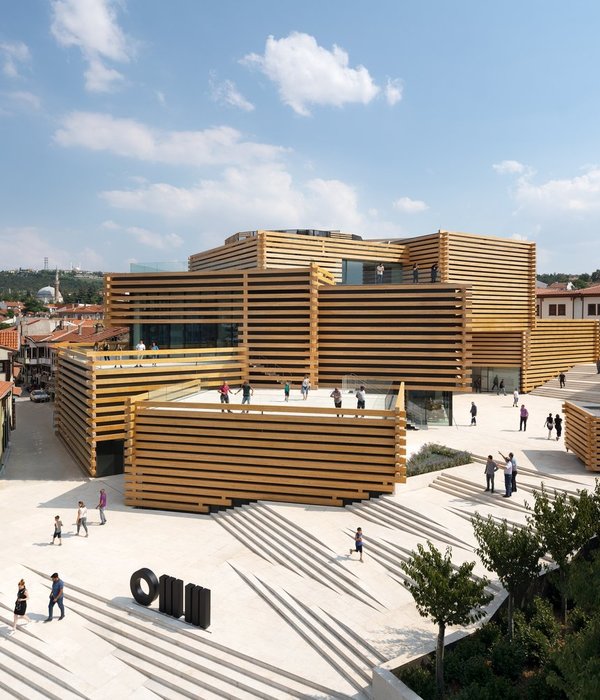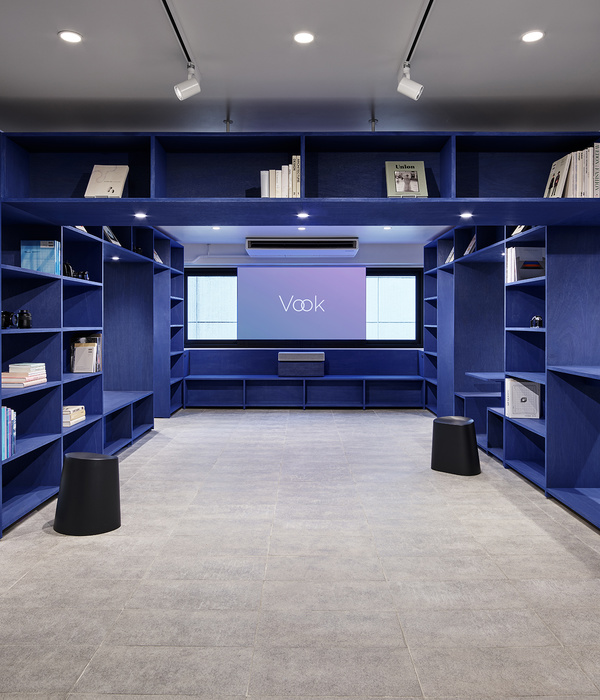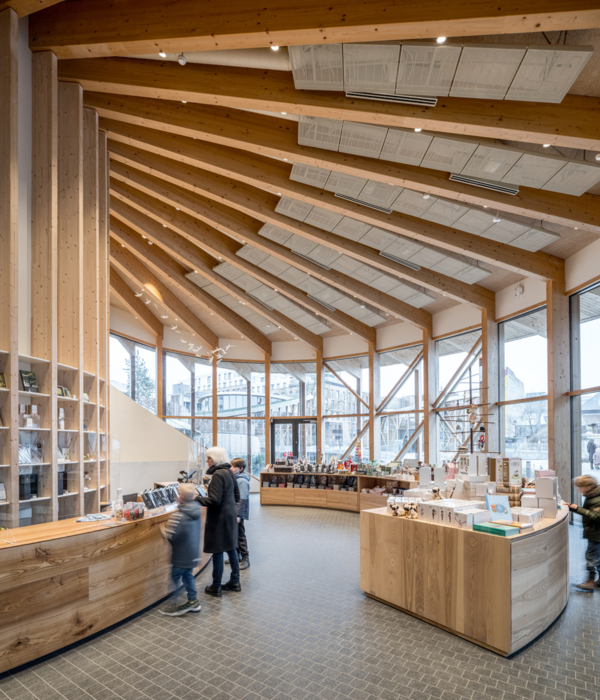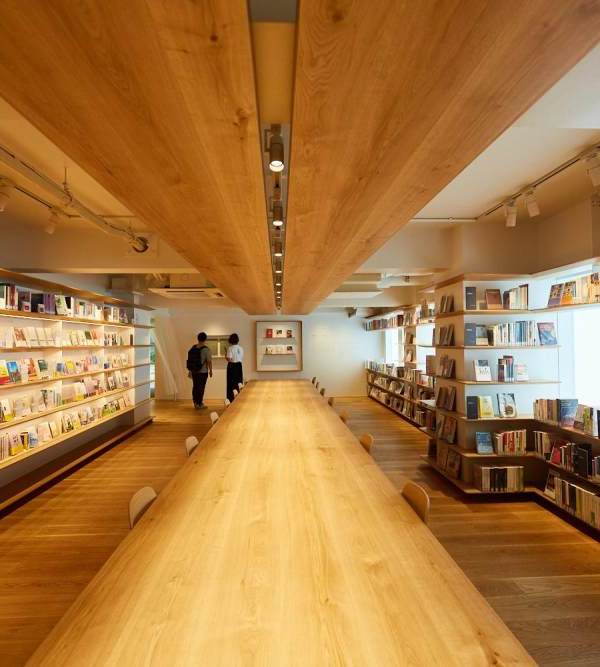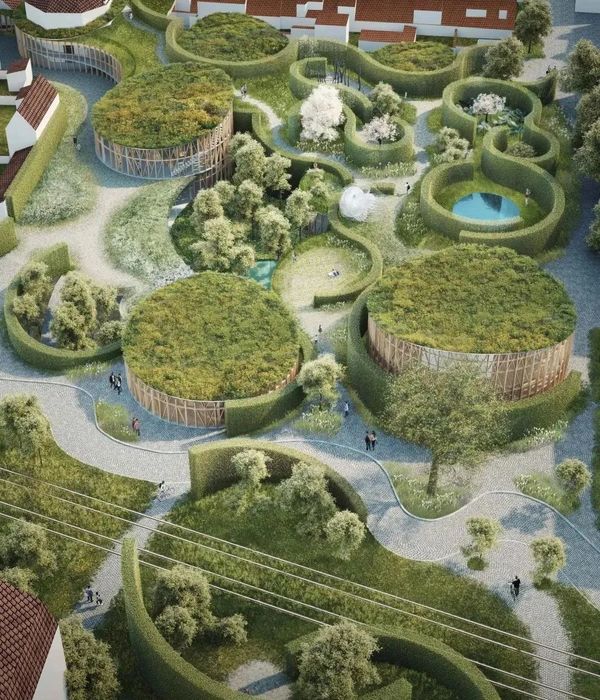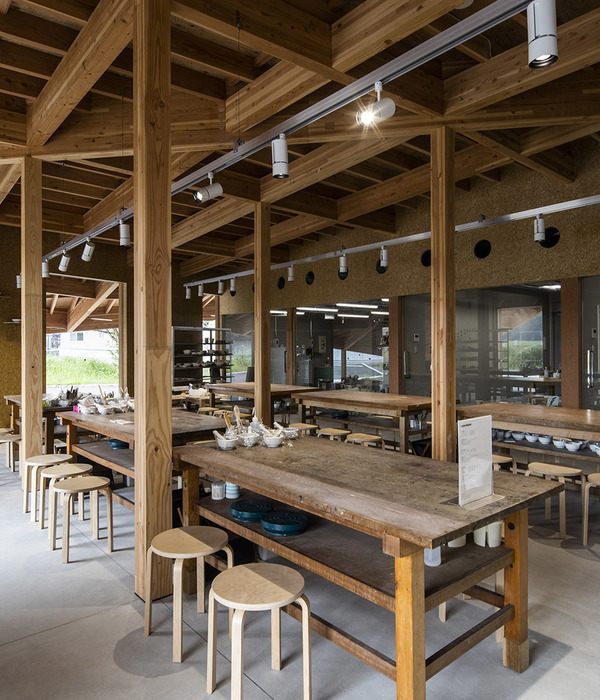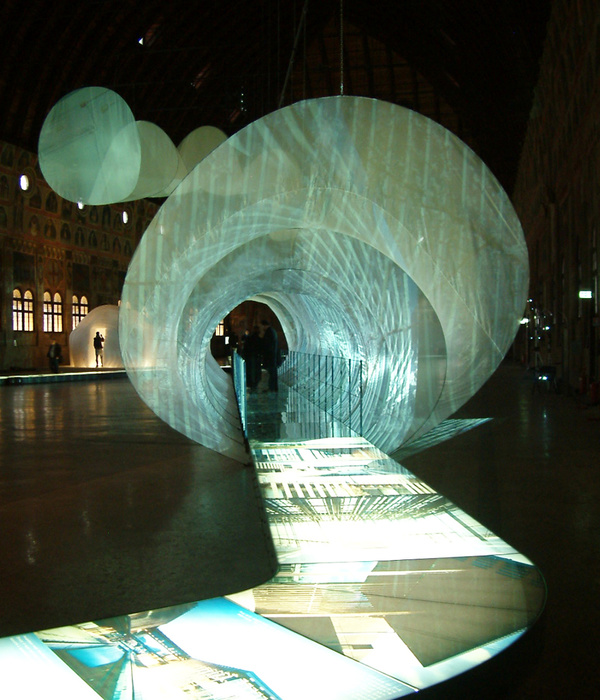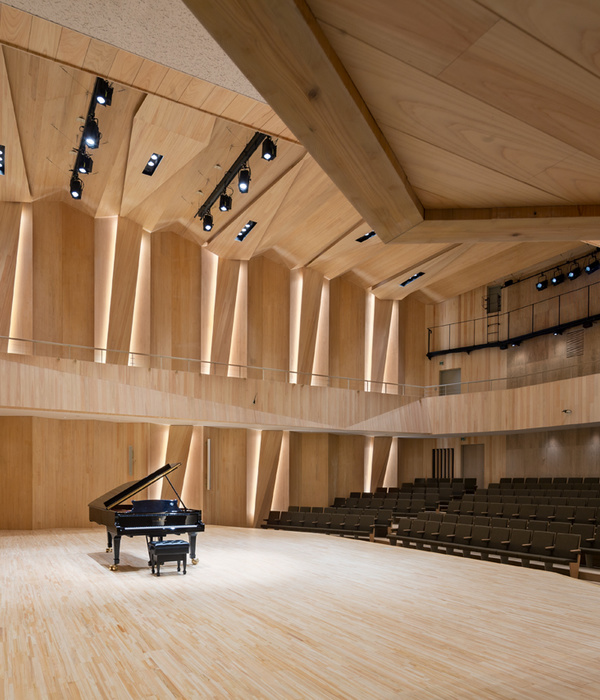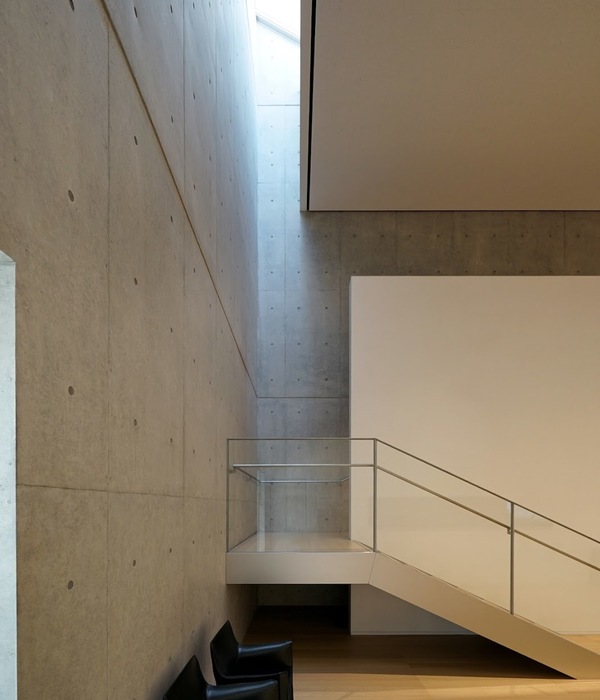在经过为期五年的筹备工作后,由Kossmanndejong事务所与ARTIS动物园合作完成的Groote博物馆于本月正式向公众开放。
For five years, Kossmanndejong and ARTIS worked on Amsterdam’s newest museum, which has opened for the public this month.
▼建筑外观,Exterior view © Maarten van der Wal
Groote博物馆旨在营造一场充满趣味的探险旅程,鼓励观众意识到自身是作为自然的一部分而存在。当观众在博物馆中移动时,他们会不断地将自己与植物、动物和微生物进行比较,并从中意识到自己与周围世界的联系其实远远超乎想象。
When you enter the Groote Museum, you embark on a personal expedition revolving around the question of how you are part of nature. As you and your body move through the museum, you continuously compare yourself to plants, animals and microbes. Through these comparisons, you discover that you are much more connected to the world around you than you may have thought.
▼博物馆空间概览,Overall view to the museum space © Maarten van der Wal
是什么让你成为现在的自己?你和一只蝾螈的区别在哪?你脚上的鞋子是否从某个角度说明了你与地球的联系?Groote博物馆正是为了那些愿意质疑自己以及自身所处环境的人而准备。
What makes you who you are? How do you differ from a salamander? Do your shoes say something about how connected you are to the earth? This museum is for anyone who is open to question themselves and their environment.
▼中庭楼梯,Atrium staircase © Maarten van der Wal
与众不同的博物馆A different kind of museum
当观众登上宏伟的大楼梯顶部,将首先看见由Art+Com设计的互动装置。它们会在屏幕中看见自己正身处这个空间之中。忽然,头顶上的天花板“飞”了起来,动物们正从外面窥视着你。这时你发现自己宛如一只脆弱的小动物。
Groote博物馆有意地避免了传统的说教,它不去告诉游客该如何想或如何去做。每个人都可以自己决定自己想要探索的目标,博物馆所提供的只是洞察的视角,而不给出任何结论。一部分观众可能会觉得不太适应,尤其是在一系列声音景象的作用下,例如震耳欲聋的暴雨,都可能引发参观者产生某种“不安”的情绪。接下来还有一条“气味隧道”,它的作用并非让你辨别出某种味道,而是让你发现气味会如何对你产生影响,或许是激发出一种意料之外的联想,或许是引起一段特殊的记忆或情绪。Groote博物馆致力于调动观众的感官,强调用身体的各个部位来体验自然。
When you enter at the top of the building’s monumental butterfly staircase, an Art+Com installation shifts your perspective. On a screen, you see yourself in the space. Suddenly, the room’s ceiling flies off and animals peer inside, eyeing you from above. Are you still that big as a person?
We purposely do not give visitors any traditional didactic tools that tell them what to think or do. They can decide for themselves what they want to explore. The museum provides insights but draws no conclusions. This may throw visitors off-kilter. Soundscapes, such as a deafening downpour, may disturb visitors even more. And then there is the scent tunnel. Here, it is not about what you smell but how the smells affect you. They may unlock surprising associations, memories and emotions. The Groote Museum heightens the senses to emphasise how you experience nature with your whole body.
▼首层空间,Ground floor © Maarten van der Wal
逆向的视觉语言A contrarian visual language
博物馆所在建筑是在1855年专门设立的,为的是按照当时盛行的分类学原则对自然进行研究和组织。虽然建筑中设有170米长的展示柜,但其实建筑本身才是真正且唯一的“收藏品”。不过,在建筑如今所讲述的故事中,我们与自然的关系已经发生了根本性的变化——不再是“我们”与“自然”,而是“我们”作为“自然”的一部分。这也是为什么,Groote博物馆不再将展品整齐地摆放在陈列柜中,或者将它们按照分类学排列。展柜的玻璃门被彻底打开,“动物”们得以走向室外,人与自然之间的障碍也就此消退。
The building was specially created in 1855 to study and organise nature according to the prevailing taxonomic principles at the time. This building with its 170-metre-long showcases is actually the only real collection piece and, therefore, still plays a leading role in the story. But in this story, our relationship with nature has radically changed – it’s no longer us and nature, but us as part of nature. That is why the museum’s new visual language is different. The story no longer sits neatly in the showcases, arranged according to biological classifications. The showcases’ glass doors open and the animals step outside. The barriers between “man” and “nature” begin to recede.
▼展柜的玻璃门被彻底打开,“动物”们得以走向室外,The showcases’ glass doors open and the animals step outside © Maarten van der Wal
博物馆的中轴线也完全打开,使游客可以从东展厅一路行至西展厅的尽端。建筑东翼设置了一个新的工作坊,这是一个向所有人开放的空间,每天都有不同的事情发生。该空间进一步淡化了藏品与观众,以及自然与人之间的界限,使他们形成一个统一的整体。
We left the museum’s central axis open, from one end of the East Hall to the other end of the West Hall. There is a new workshop in the East Wing, an open space for everyone where something happens every day. In this way, the boundaries between collection and visitor blur, and the boundaries between nature and people fade and become one.
▼俯瞰开放的中轴线,Overlook to the open central axis © Maarten van der Wal
▼阶梯座位,The staircase seating © Maarten van der Wal
▼入口,Entrance © Maarten van der Wal
Artistic direction – Haig Balian
Project management – Harrie Knol
Concept, content and design – Peter den Dekker, Eveline Hensel, Haig Balian, Marjolein Drenth, Michel de Vaan (Kossmanndejong)
Collection – Bettine Verkuylen, Colette Olof
Text – Anneke van Huisseling
Films and animation – BIND
Media installations – ART+COM Studios, Yipp
Sound design – Pablo Lamar
Light design – Simon Corder
Exhibition construction – BRUNS
AV technology – Ata-tech
And many others
{{item.text_origin}}

